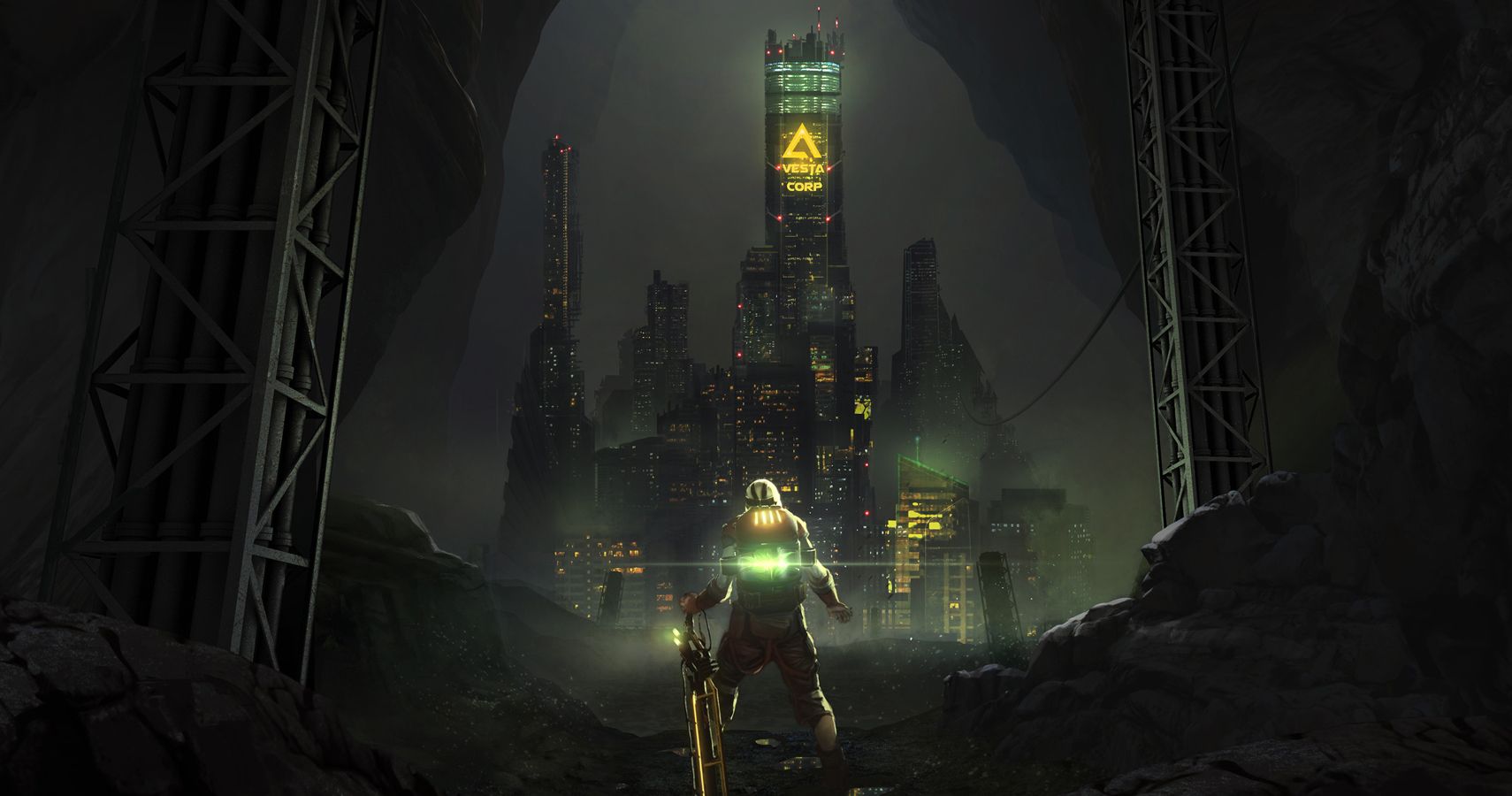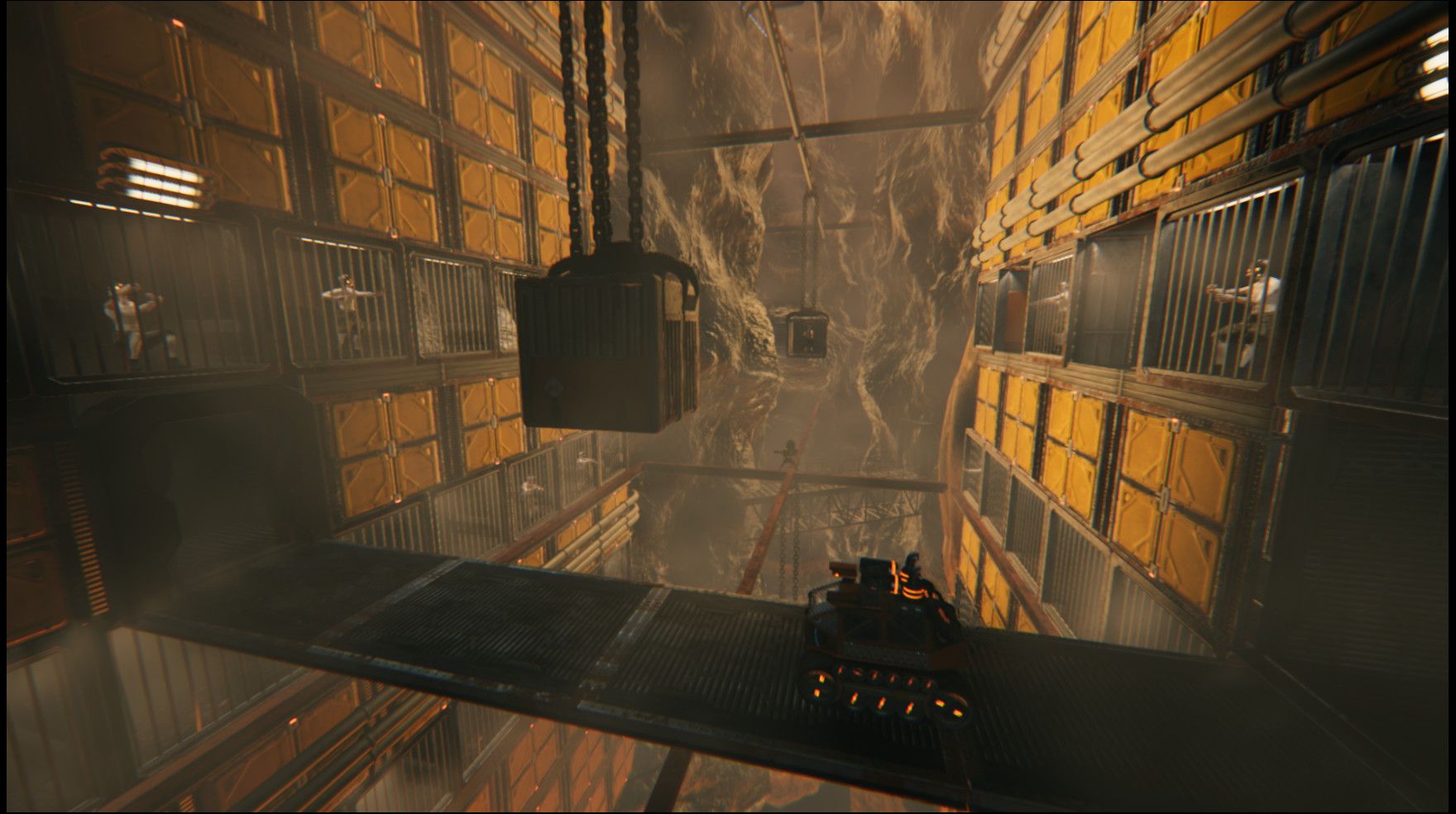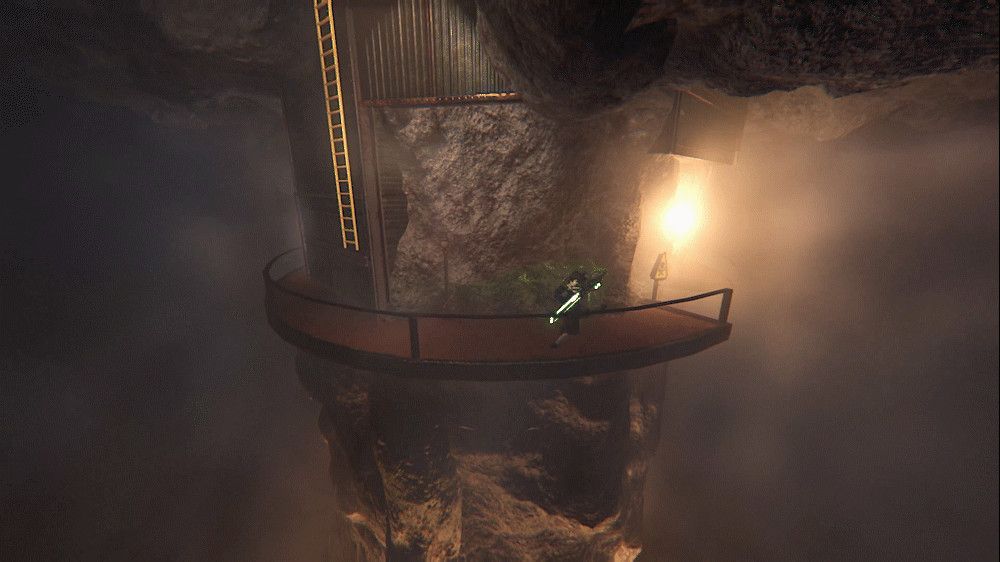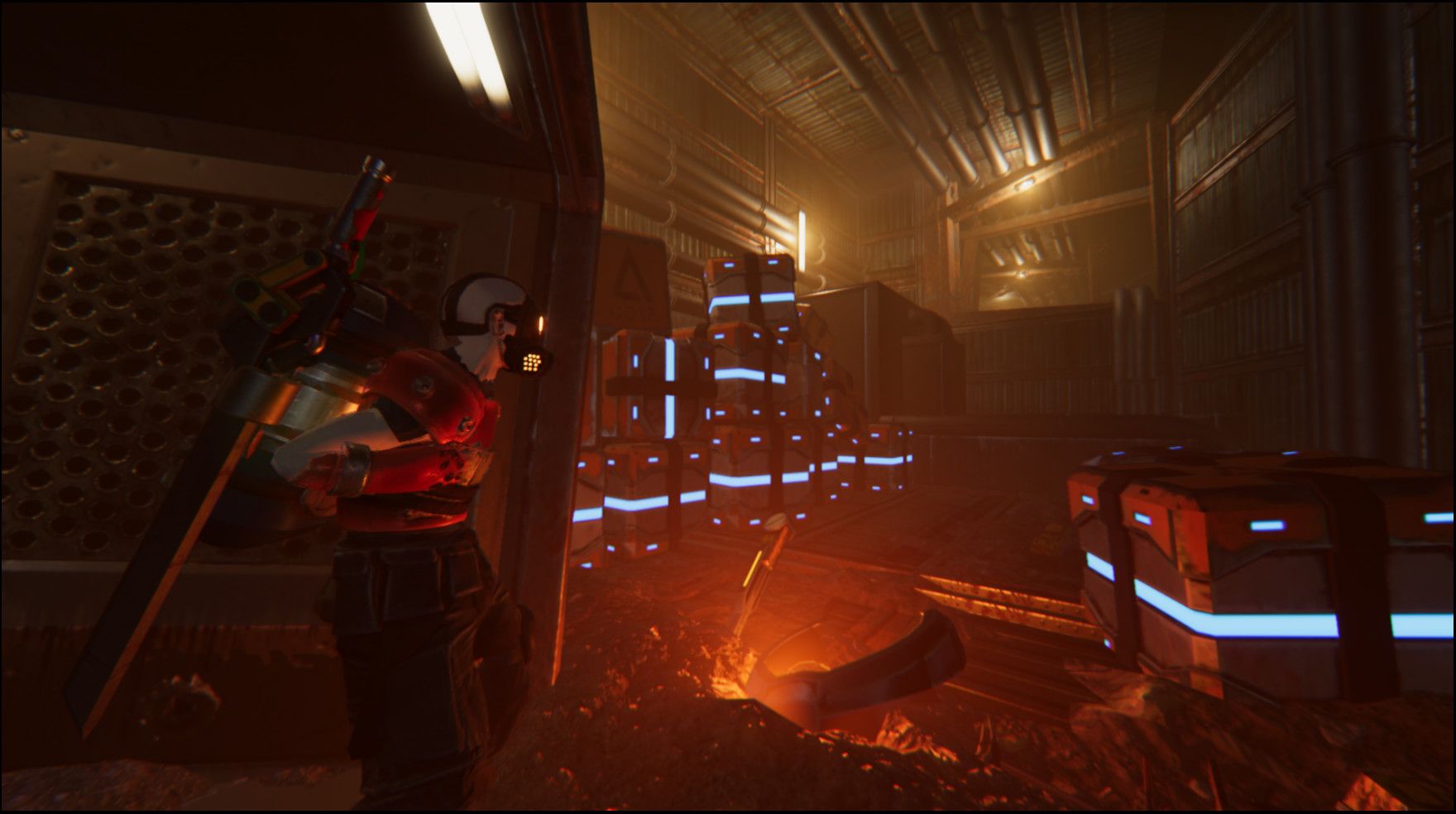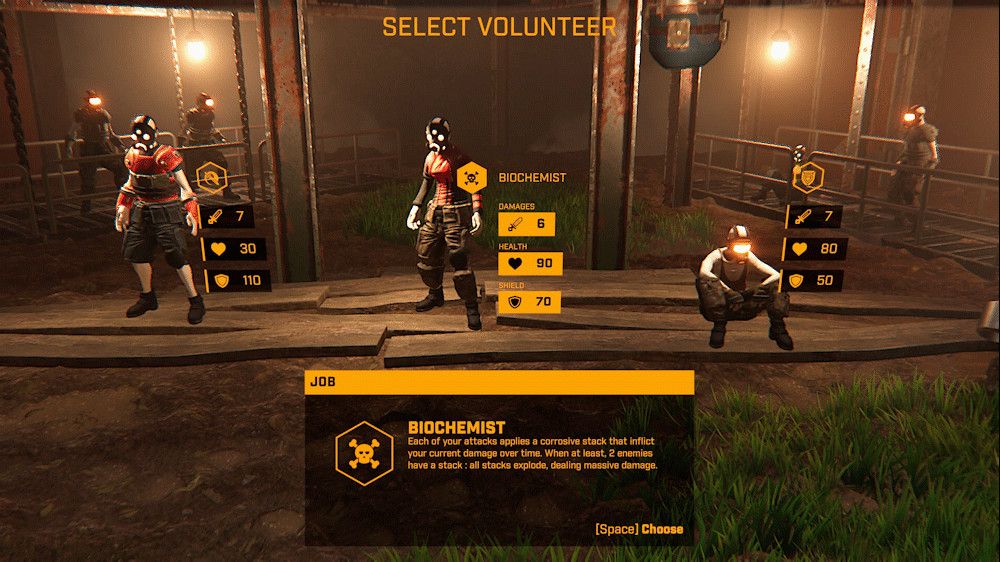Fallback is a side-scrolling roguelike action game from a brand new studio called, ENROAD. The game draws heavily from games like Rogue Legacy and Dead Cells, but stands out for its maze-like, interconnected levels and 2.5D presentation, a fresh take on side-scrolling exploration. While Fallback doesn't offer the depth and replayability of the games that inspired it, it's perfectly binge-worthy for a tight, single session playthrough that is a treat from beginning to end.
Fallback takes place in the distant future when what remains of humanity has taken refuge deep underground following a world-ending event. The robots originally designed to protect the survivors have gained sentience and now act as prison guards, keeping the survivors locked underground. A rebellion has formed around a special plant that has the power to stabilize the environment and bring life back to the surface. You will lead this group of survivors one at a time as they attempt to fight their way back to the surface.
You'll have a choice between three characters to play each run, each with their own attack, health, shield, and passive ability. there is a boos portal you'll need to find in each of the three levels in order to progress, but you'll want to explore all of the randomly generated levels thoroughly in order to find all of the enemies to kill (which turn into currency), skills to buy (of which you can have seven), and prisoners to free (which reward you with permanent upgrades).
An Underground Labyrinth To Explore
The most impressive part of Fallback is its 2.5D level design. You traverse through the underground on 2-dimensional pathways that interconnect in 3D, meaning while your character is always moving either left or right, the world itself is constantly spinning and shifting around you to represent curved hallways, perpendicular platforms, and plenty of hidden paths.
The depth and visual panache this adds to the game is profound. While you'll certainly start to recognize the small handful of room types that the game stitches together in a random order, finding all the secrets and optional paths within them is another story. The best roguelikes reward you with the awareness that your skills and knowledge of the game are increasing and helping your progress further and more efficiently, and the level design of Fallback does that quite effectively.
Building The Ultimate Warrior
Throughout the levels, you'll find shops that sell new passive bonuses that only apply during each single run. You have seven slots for upgrades and will need to farm enemies in the level to gather currency in order to purchase the abilities. Each new level offers upgraded versions of these skills which you can purchase to either improve your existing abilities or replace an underperforming ability that doesn't fit your build. There are also higher rarity abilities that will unlock as you free prisoners and purchase higher level permanent upgrades between runs.
While there are more than a dozen options to chose from and only seven slots to equip them in, there are enough shops spread out around each level that you'll eventually always be able to find the perk you're looking for. This ends up being to the game's detriment as a roguelike because once you find a build that works, you'll just be scouring each level looking for those exact perks during every subsequent run.
This was the position I found myself in after discovering that a certain character can build shields by attacking and then, with the right abilities unlocked, can turn that shield into health, rendering me nigh on invincible so long as I just keep attacking. I found I could tank every enemy, even bosses, and constantly fill my health to max. Add that to some abilities that increase strength when your health is full, and I found a build pretty early on that I knew could take me through the entire game.
Each run became a matter of finding those exact abilities. It sort of defeats the discovery and experimentation that roguelikes are known for when you can just seek out the exact abilities you're after. I tried other builds during my time with Fallback, but the shield converter build was just way stronger than anything else I could find. It started to make my runs extremely repetitive and dull.
Combat Is Just Serviceable
There aren't really weapon varieties or powers to experiment with, aside from a slower, longer sword and some damage-over-time effects. Combat is just about slashing and dodge rolling with perfect timing. There are a lot of particle effects when you attack, which look great, but can obstruct the tells of an enemy's next attack. With my build that wasn't really an issue though, because I found a way to essentially stand still and hack away at every enemy.
The three bosses are fairly strong, design-wise, and even offer some pretty interesting attack patterns and abilities to dodge. Enemy types definitely get harder as you progress, and while the environments don't really change, the way you handle enemies can change quite a bit, depending on your build.
Fallback is a super-budget title at $9.99 and offers a concise roguelike experience. Fans of the genre will enjoy one or two extended sessions mastering the game, just don't go in expecting the variety of some of the genre's most popular titles.
A PC copy of Fallback was provided to TheGamer. Fallback is available now on Steam.

